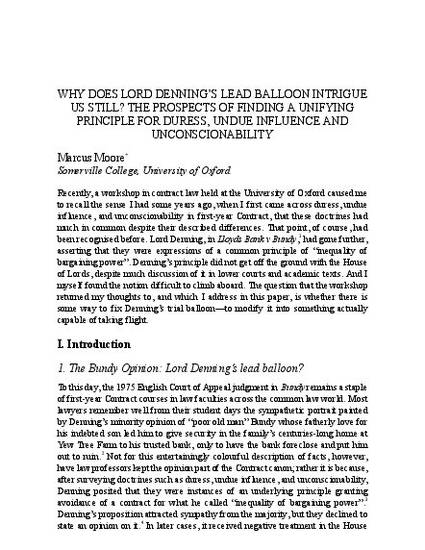
- contract,
- inequality of bargaining power,
- autonomy,
- duress,
- undue influence,
- unconscionability,
- denning,
- freedom of contract,
- vitiated,
- consent
To this day, Lord Denning’s opinion in Lloyds Bank v Bundy remains a staple of first-year Contracts courses in law faculties across the common law world. After surveying doctrines such as duress, undue influence, and unconscionable bargains, Denning posited that they were instances of an underlying principle permitting avoidance of a contract for “inequality of bargaining power”. Although rejected by the House of Lords, Denning’s proposition has intrigued Contract scholars for more than four decades. Subsequent attempts to “fix” Denning’s thesis have fallen short. Yet, authors of Contract textbooks persist in asking whether the doctrines might yet be unified in the future. This paper argues that a common principle indeed does exist, whose conditions emerge from careful analysis of the insights and flaws of the theories posited by Lord Denning and others following him. As Contract scholars have noted, recognising the common principle would greatly simplify and rationalise this area of law. It should permit a more principle-focused and consistent adjudication of cases where a party seeks to avoid a contract on the basis that its consent was vitiated by duress, undue influence, or unconscionability.
